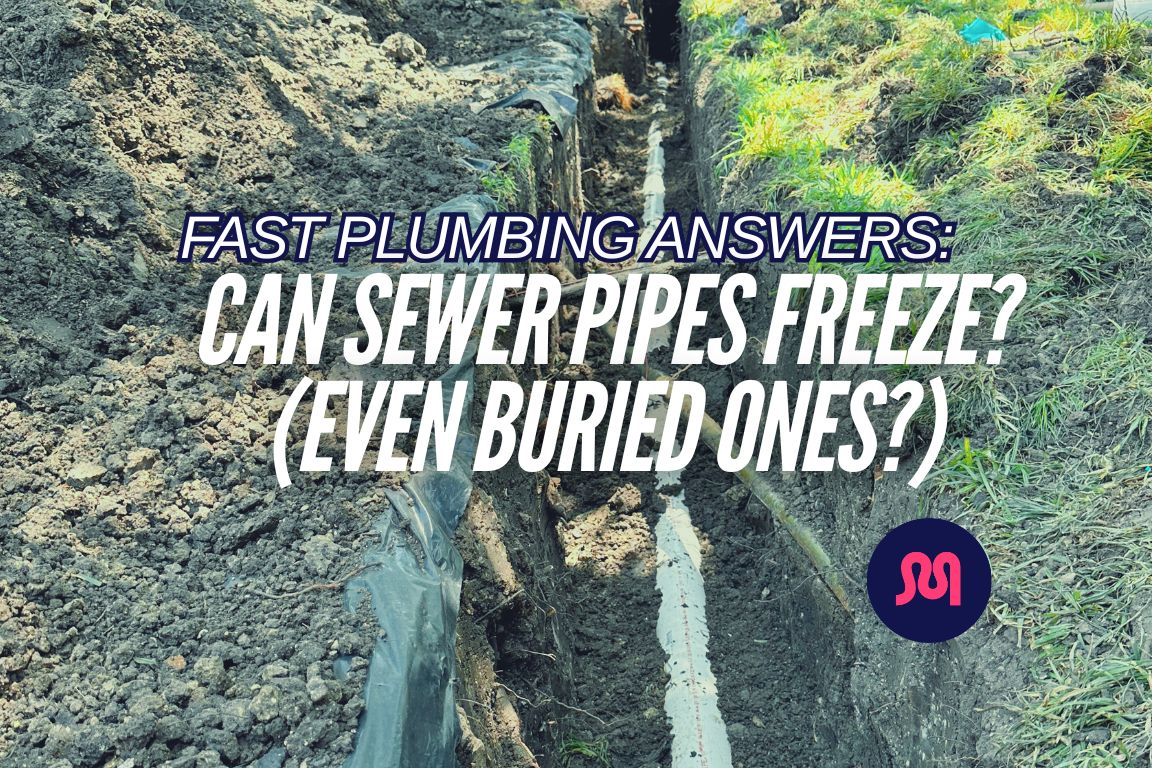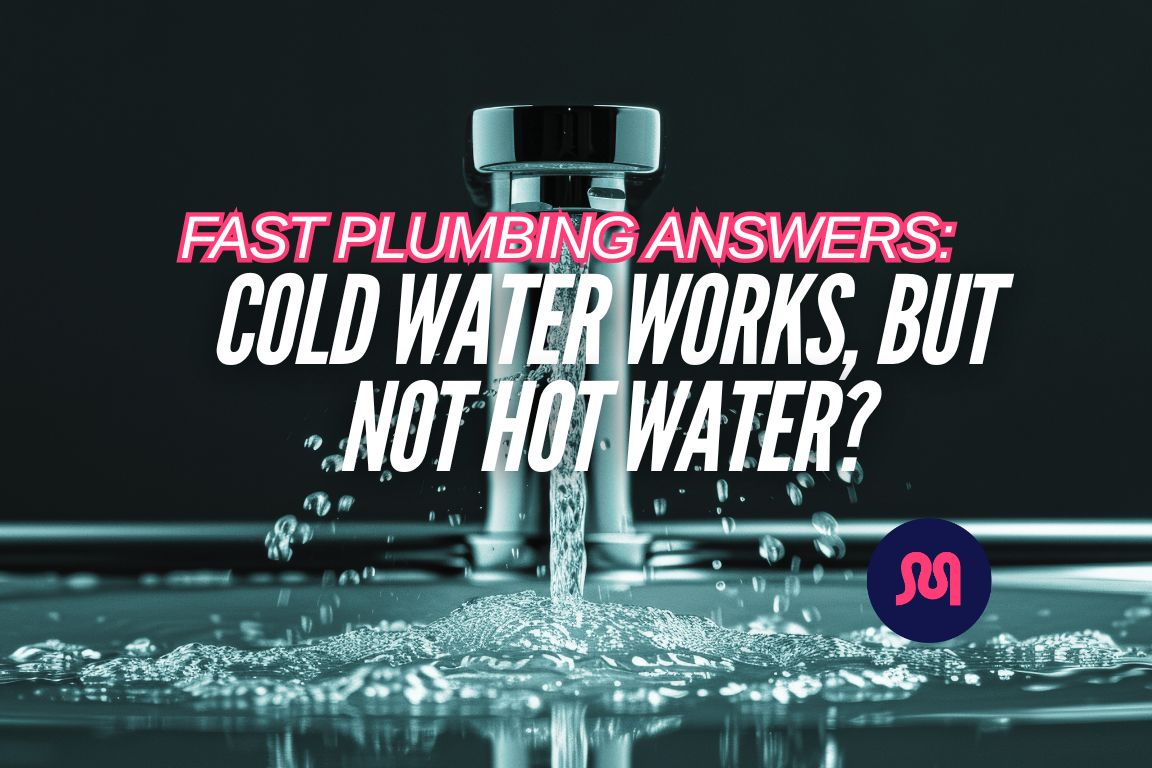Stop Calcium Deposits in Pipes For Good

table of contents
table of contents
Calcium deposits in pipes are a direct result of hard water — water with high mineral content like calcium carbonate and magnesium. Our plumbing experts live and work in the Dallas-Fort Worth Metroplex, home of the #6 hardest water in America. We find the most effective long-term solution to stop mineral buildup in your pipes is to install a home water softener system.
Water softeners replace magnesium and calcium ions before they enter your home's plumbing system, stopping hard water buildup before it starts. Keep calcium accumulation out of your plumbing fixtures, and you'll have clear pipes, higher appliance efficiency, and better tap water for cleaning and bathing.
Our DFW plumbing experts install most water softeners in one appointment on one day. Homeowners report significant reductions to their annual plumbing repair and pipe maintenance costs over the lifespan of their system.
- Calcium build up does more than damage your pipes. Hard water deposits reduce appliance efficiency, reduce water flow, increase drain cleaning costs, and lower the overall quality of your tap water.
- Home water softener systems are recommended by the U.S. Department of Energy. The Department of Energy suggests every home in America should have a water softening system — especially in hard water hotspots like Indianapolis, Minneapolis, Las Vegas, San Antonio and Dallas-Fort Worth.
- Water softener tanks remove hard minerals before they enter your home. These tanks replace calcium and magnesium ions with softer sodium or potassium ions. (You can't have limescale or calcium buildup if it never enters your pipes.)
- Hard water reduction directly improves home health and personal health. Soft water increases the lifespan and efficiency of water using appliance. And softened water is shown to alleviate symptoms of eczema, dry skin and brittle hair follicles.
{{whole-home-water-softener-installation="/services/whole-home-water-softener-installation"}}
Why Do I Have Calcium Deposits In My Pipes?
Hard water is the primary cause of mineral deposit buildup in your home's plumbing system. Hard water refers to water with high concentrations of minerals like calcium and magnesium.
Example: We live and work in the Dallas-Fort Worth region. Our area is rich with limestone and calcium carbonate, which make their way from our rocks to our soil to our water supply. These hard minerals travel through the public water supply to our main water line and into our homes.
Over time, calcium accumulation in your pipes leads to a variety of problems. We get calls most frequently about these 5 issues:
- Reduced water flow
- Drain clogs
- Clogged pipes
- Scale buildup
- Increased energy bills
4 appliance issues caused by hard water
Hard water also wreaks havoc on your plumbing fixtures and water using appliances — especially in your residential HVAC and water heater.
Hard mineral and calcium buildup in your home’s plumbing causes 4 major issues to your home’s appliances:
- Scaling in your water heater
- Reduced HVAC efficiency
- Reduced lifespan of water using appliances
- Inefficient dishwashers and washing machines
McGill University’s Office for Science and Society states that “hard water can interfere with the action of soaps and detergents”.
“Every Home Should Have a Water Softener”
The U.S. Department of Energy says that “every home should have a water softener”. They note water softening’s value in regions with hard water — especially the Midwest and Texas.
The Department of Energy’s EnergySaver program maintains an excellent guide to every type of home water softener system. They note that these systems save homeowners money in the long term on repairs and maintenance and drastically improve water flow and the quality of water coming into your home.
Water softener systems are a long-term solution
DIY solutions and home remedies like baking soda and vinegar are good “stopgap” measures, but they don't address the root problem.
The moment you flush calcium buildup or limescale from your pipes, it starts over again. Preventing calcium buildup before these minerals enter your pipes is the key to success.
As one expert plumber put it: “Would you rather flush scaling out of your pipes 4 times a year, or install a water softener and stop worrying about it?”
Love the idea of long-term plumbing maintenance? Save money with our Platinum Pipeline Club Membership!
How Do Whole House Water Softeners Work?
The main process that makes home water softeners work is called ion exchange. This process removes ions from hard minerals (like calcium and magnesium), and replaces them with sodium or potassium ions.
Hard water from your main water line enters a mineral tank before reaching your taps. The mineral tank contains resin beads that are charged with sodium ions. Hard mineral ions are attracted to these charged resin beads — so they’re “stuck” in the mineral tank.
The sodium ions replace the hard ions in your water supply. This softened water then passing out of the mineral tank and into your home.
Why Soft Water Is Good For Your Health
There are conflicting reports about whether or not hard water is good for your health. But don’t just think of “tap water” as the water you drink — it’s the water that cleans your dishes, your clothes, and your body. And it’s also the water that’s delivered to your appliances and home HVAC system.
Eliminating hard minerals like calcium carbonate from your potable water supply is good for your health, and the overall health of your home’s plumbing and appliances.
5 ways soft water improves your plumbing & appliances
Calcium carbonate, magnesium and lime scale don’t just build up in your pipes. They create scaling and reduced water flow in your faucets and taps, clog your water using appliances, and leave mineral residue on your clothes and dishes.
Here are 5 ways that water softening improves the health and performance of your plumbing system and water using appliances:
- Reduced scaling and hard minerals in your pipes
- Longer lifespan of home appliances
- Improved tap water quality
- Cleaner laundry
- Cleaner dishes
5 ways soft water improves your personal health
Hard minerals in tap water are directly linked to 5 common hair and skin issues:
- Dry skin
- Eczema
- Psoriasis
- Damaged hair follicles
- Minor hair loss
Homeowners who install a whole house water softening system report significant improvements to these skin irritation and brittle hair issues.
Stop Calcium Deposits in Pipes in One Day
Expert home water softener installers — like our plumbing pros at Mother Modern Plumbing — can install most tanks in one appointment on one day.
No more wasting time on home remedies that only clear your pipes for a few weeks. Stop mineral deposits in your plumbing system for good, and save yourself a big chunk of money on future plumbing repairs and pipe replacement.
Give us a call — our DFW plumbing experts would love to answer your questions about home water softener systems.
{{whole-home-water-softener-installation="/services/whole-home-water-softener-installation"}}




